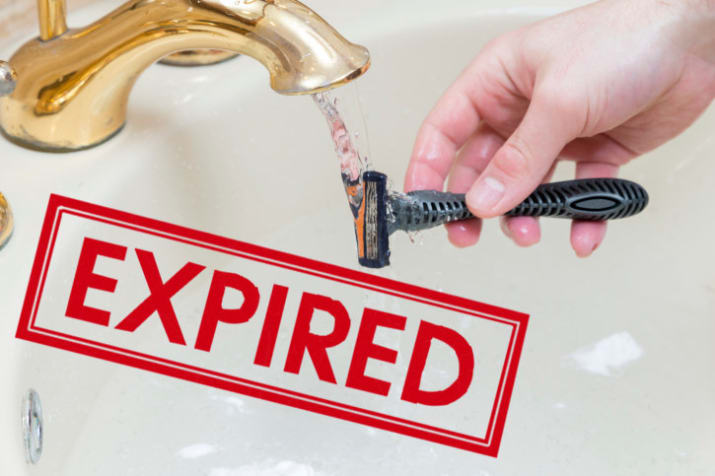
11. Insect Repellent

Insect repellent loses effectiveness after around two years from the manufacture date, which should be marked on the bottle. Don’t let the bugs win.
Solution: Check the date before you buy to make sure it isn’t already old, and get new spray every couple of years.
12. Running Shoes

After around 250 miles of running, sneakers can start to lose their cushioning, which means more stress on your joints.
Solution: For hard runners, get new shoes every 200 to 300 miles. For less strenuous users, replace your workout shoes every six months to a year.
13. Disposable Razors

Sure, you know that disposable razors are supposed to be disposable. But do you know how often? To prevent bacteria buildup and razor burn, you should toss your razors every week, or every three to four shaves.
Solution: Get a new razor every week, and make sure to let it dry between uses.
14. Bike Helmets

Like car seats, bike helmets can lose their safety effectiveness over a couple of years and after any kind of crash or trauma.
Solution: Replace helmets if they’ve been damaged in any way, and otherwise replace every three to five years or based on manufacturer recommendations.
15. Potatoes

The common potato and other plants of the same nightshade family (like tomatoes and eggplants) contain traces of a toxic chemical called solanine that can be very dangerous and even deadly. The toxin is minimal in raw, unspoiled potatoes, but if sprouted, overexposed to the sun, or stored near other vegetables that increase spoilage (like onions) for a long period of time, the concentration of this chemical can become harmful. When stored correctly, ripe potatoes should stay good for two to three months.
Solution: Don’t eat green (unripe) or sprouted (overripe) potatoes; store potatoes in a cool, dark place.
